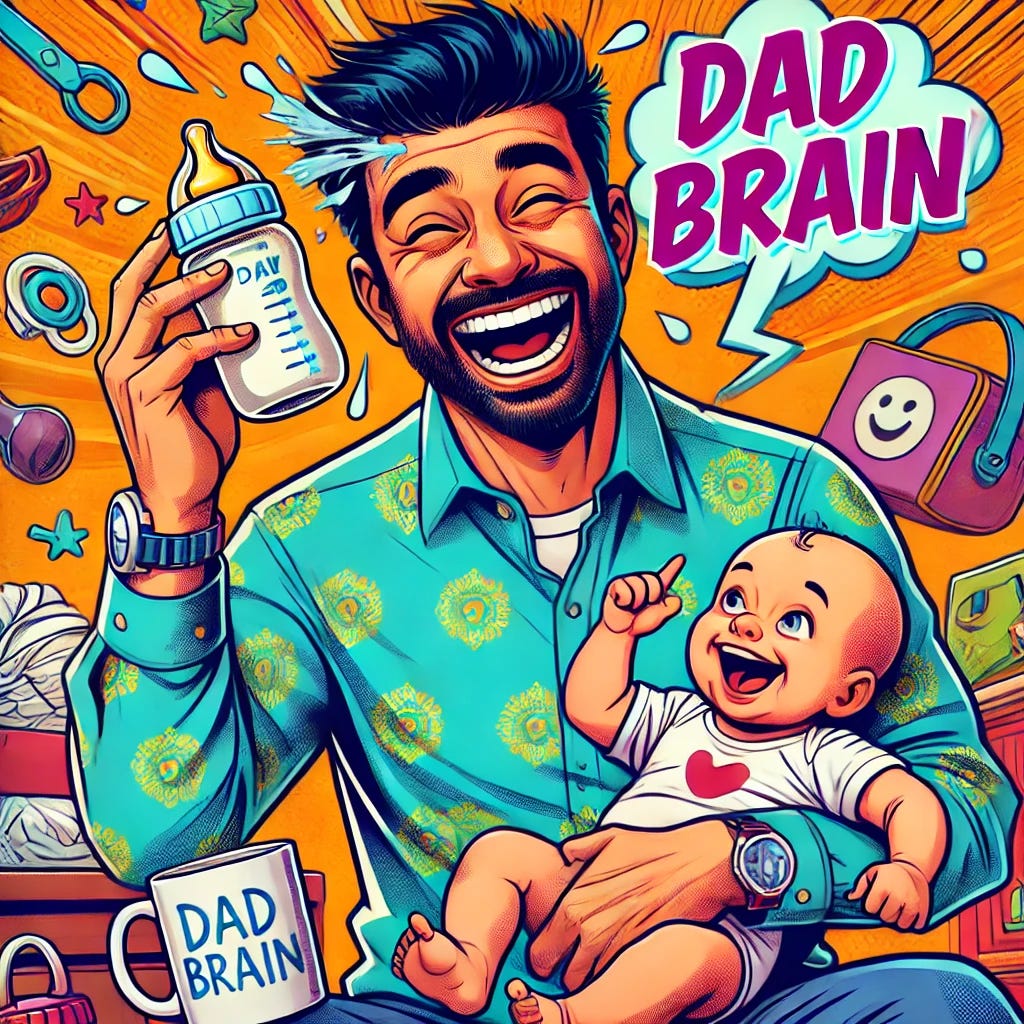Before you say, ‘Stop making-up words like Dad Brain’, let me tell you that it is a term backed by research.
I look in the mirror and see my ‘Dad Bod’; the slight double-chin, the slight belly, and the slightly oversized clothing hiding the sum of all the slight parts. I was familiar with the term and frankly okay with it considering this is a phase where the focus is on the baby and not the biceps. But the term ‘Dad Brain’ is something I recently discovered.
Men develop a sort of “dad brain” after their baby is born, somewhat like how mothers’ brains change in response to their newborns. (1)
What this means, in a way, is that like mothers, fathers also go through biological changes. Of course, the Dad Brain cannot be compared with the mother’s much more challenging pregnancy journey, the delivery, and post-delivery phases. But what it does is highlight an important point.
There have been several studies that reveal a man’s brain undergoes several changes in the first weeks of fatherhood. In the first days and weeks of fatherhood, a man’s testosterone and cortisol levels decrease and oxytocin, estrogen, and prolactin levels surge, promoting an important bonding experience between a father and his newborn child. (2)
What I am getting at is that fatherhood is not just a social role but also a biological one.
Implications of the Dad Brain.
Strengthened Father-Child Bond: The hormonal changes facilitate a strong emotional bond between father and child, which is crucial for the child's healthy development.
Increased Paternal Caregiving: The shifts in hormone levels make fathers more inclined to engage in caregiving activities, such as feeding, soothing the baby, and changing diapers. (Suggested Read: The One With The Diaper Dance)
Enhanced Empathy and Responsiveness: These hormonal changes can heighten a father's empathy and sensitivity to their baby's needs, making them more responsive to cries and other cues.
But, but, but, there’s more to this.
You must be aware of how both nature and nurture play a key role in shaping individuals and the society at large. So, while the nature or the biological aspect is highlighted above, here’s the bit on the nurture or cultural aspect.
The degree of brain plasticity in fathers may be linked with how much they interact with their baby. Social, cultural and psychological factors that determine how much fathers engage with their children may, in turn, influence changes to the fathering brain. We recruited 40 men – 20 in Spain and 20 in California – and put each into an MRI scanner twice: first during their partner’s pregnancy, and again after their baby was 6 months old. We also included a control group of 17 childless men. Spanish fathers, who, on average, have more generous paternity leaves than fathers have in the U.S., displayed more pronounced changes in brain regions that support goal-directed attention, which may help fathers attune to their infants’ cues, compared with Californian fathers. (3)
Here, paternity leave is just one example of the social aspect under the nurture category. Similarly, how one’s culture (hello, patriarchy) and psychology (hello, alpha male) also plays a part in how the Dad Brain evolves.
And even in a polarised world, I hope there’s agreement that an evolved brain is much better than an unevolved one, considering such evolution brings harmony among humans of all kinds, other life forms, and the environment. Only then can we think of moving away from the Law of the Jungle or Matsya Nyay (bigger fish eats the smaller fish) towards righteous conduct, moral law, and social order built on a system of duties and responsibilities that promote balance.
Sources:




